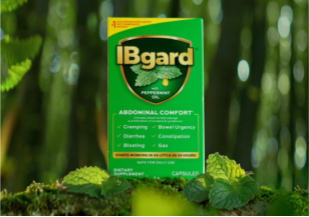

Holistic Self-Care: Cultivating Wellbeing through Gut-Health
13 Sep 2024
Taking care of oneself has become a vital aspect of maintaining overall wellbeing. One crucial element of self-care that often goes unnoticed is gut health. The health of our gut comes down to having a healthy gut microbiome. The gut microbiome is not only important for physical health, but it’s crucial for our mental health, the integrity of our skin, and vital to our immune health. In this article, we will explore the significance of incorporating gut-health into your self-care routine and provide practical steps to create a relaxing self-care ritual. Additionally, we will highlight some gut-friendly products, snacks/foods, activities, and wellness items to enhance your self-care journey.
Supporting Mental Health
The gut and the brain are intricately connected through the gut-brain axis, a bidirectional communication system. The gut is home to trillions of bacteria that play a crucial role in producing neurotransmitters like serotonin, which is known as the "feel good” hormone. Research has shown that imbalances in gut bacteria can impact mood and mental health.
A Healthy Gut for Immune Health The gut is home to a significant portion of our immune system, with approximately 70-80% of immune cells residing in the gut-associated lymphoid tissue. The gut microbiome plays a crucial role in training and educating immune cells and helping them distinguish between harmful and harmless substances.
Steps to Creating a Daily Self-Care Routine
Step 1: Establishing Mindful Eating Habits: Embrace a balanced diet rich in fiber, fruits, vegetables, and probiotic foods and prioritize hydration and whole, nutritious foods.
Step 2: Nurturing Your Mental Wellbeing: Practice stress management techniques such as meditation, deep breathing, or journaling. Engage in activities that bring you joy and relaxation, such as reading, painting, or spending time in nature.
Step 3: Prioritizing Physical Activity: Regular exercise not only benefits your physical health but also promotes a healthy gut. Choose activities that you enjoy, such as yoga, dancing, playing pickleball, hiking, to make it a sustainable part of your routine.
Gut Friendly Products to Explore
- Foods with Probiotics: Fermented foods like sauerkraut, kimchi, and pickles contain probiotics and can help boost the diversity of gut bacteria.
- Fiber-rich foods: Eating foods high in fiber is essential for gut health. Include plenty of fruits, veggies, whole grains, legumes, and nuts in your diet to support healthy digestion.
- Walking pad: If you find yourself struggling to head outside to get some steps in, consider a walking pad. Walking, especially after a meal, can help support bloating and gas by stimulating the stomach and intestines.
- Supplement smart: Supplementing with gut-focused products like IBgard® can be a great addition to your self-care routine. IBgard® capsules are clinically shown to help manage a combination of occasional symptoms, including cramping, diarrhea, bloating, bowel urgency, constipation and gas.†
Incorporating gut health into your self-care routine is a powerful way to nurture your overall wellbeing. By prioritizing mindful eating, nurturing your mental wellbeing, engaging in physical activity, and utilizing gut-friendly products and snacks, you can create a sustainable and relaxing self-care ritual. Remember, self-care is a personal journey, so explore different activities and find what resonates with you. Embrace the ritual of self-care and let it become a transformative practice for your gut health and overall wellness.
References
- Appleton, J. (2018, August). The gut-brain axis: Influence of microbiota on Mood and Mental Health. Integrative medicine (Encinitas, Calif.). https://www.ncbi.nlm.nih.gov/pmc/articles/PMC6469458/
- Martin, S. E., Kraft, C. S., Ziegler, T. R., Millson, E. C., Rishishwar, L., & Martin, G. S. (2023, March 21). The role of Diet on the gut microbiome, mood and happiness. medRxiv : the preprint server for health sciences. https://www.ncbi.nlm.nih.gov/pmc/articles/PMC10055576/
- Wiertsema, S. P., van Bergenhenegouwen, J., Garssen, J., & Knippels, L. M. J. (2021, March 9). https://www.ncbi.nlm.nih.gov/pmc/articles/PMC8001875/
- Hemarajata, P., & Versalovic, J. (2013, January). Effects of probiotics on gut microbiota: Mechanisms of intestinal immunomodulation and neuromodulation. Therapeutic advances in gastroenterology. https://www.ncbi.nlm.nih.gov/pmc/articles/PMC3539293/
- Fu, J., Zheng, Y., Gao, Y., & Xu, W. (2022, December 18). Dietary fiber intake and gut microbiota in human health. Microorganisms. https://www.ncbi.nlm.nih.gov/pmc/articles/PMC9787832/


